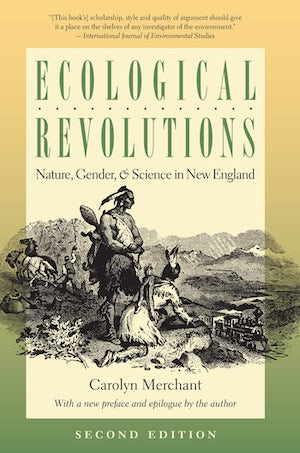Synopsis
With the arrival of European explorers and settlers during the seventeenth century, Native American ways of life and the environment itself underwent radical alterations as human relationships to the land and ways of thinking about nature all changed. This colonial ecological revolution held sway until the nineteenth century, when New England's industrial production brought on a capitalist revolution that again remade the ecology, economy, and conceptions of nature in the region. In Ecological Revolutions, Carolyn Merchant analyzes these two major transformations in the New England environment between 1600 and 1860.
In a preface to the second edition, Merchant introduces new ideas about narrating environmental change based on gender and the dialectics of transformation, while the revised epilogue situates New England in the context of twenty-first-century globalization and climate change. Merchant argues that past ways of relating to the land could become an inspiration for renewing resources and achieving sustainability in the future.
In a preface to the second edition, Merchant introduces new ideas about narrating environmental change based on gender and the dialectics of transformation, while the revised epilogue situates New England in the context of twenty-first-century globalization and climate change. Merchant argues that past ways of relating to the land could become an inspiration for renewing resources and achieving sustainability in the future.
Moyenne
18.0
1 vote
TRES BON
1 édition pour ce livre
Qui a lu ce livre ?
1 membre a lu ce livre
Aucun membre ne lit ce livre
Aucun membre ne veut lire ce livre
1 membre possède ce livre
chronique de blog
Aucune chronique de blog pour le moment.
En vous inscrivant à Livraddict, vous pourrez partager vos chroniques de blog !



Pour poster un message, il faut être inscrit sur Livraddict
Livre académique sur l'évolution humaine de la vision de l'écologie avec une perspective de genre qui prend la Nouvelle-Angleterre comme cas d'étude. Le cadre théorique permet une analyse approfondie de processus socio-historiques complexes et c'est passionnant. Malgré le fait que ce soit un sujet que je maîtrise, j'ai appris beaucoup et ce livre a ouvert la porte à de nouvelles réflexions.